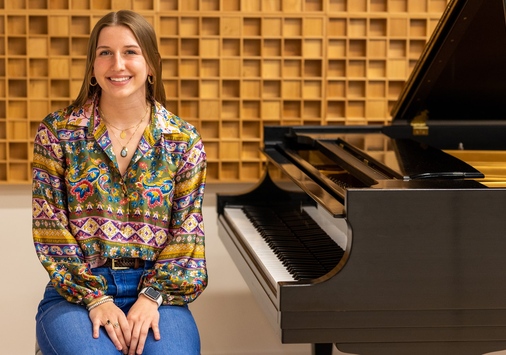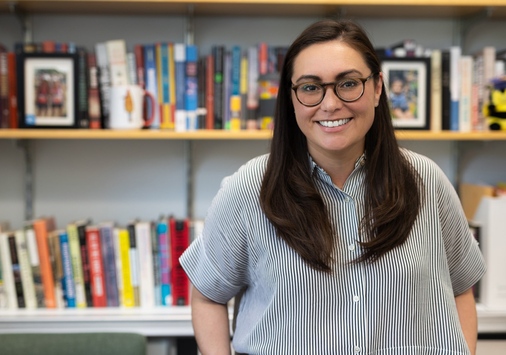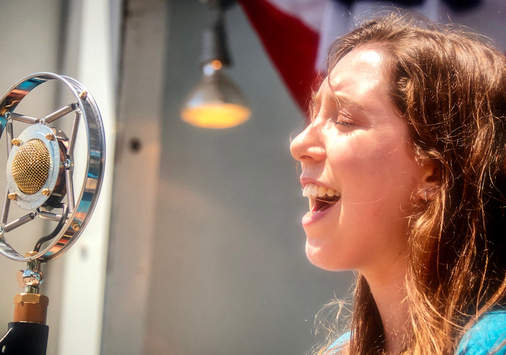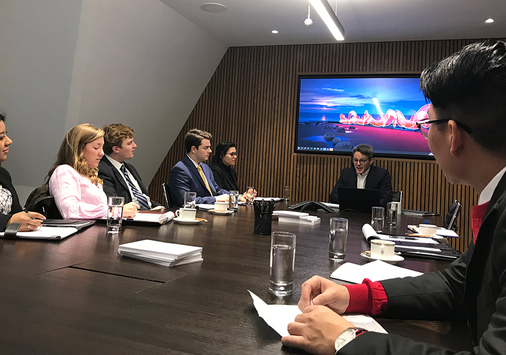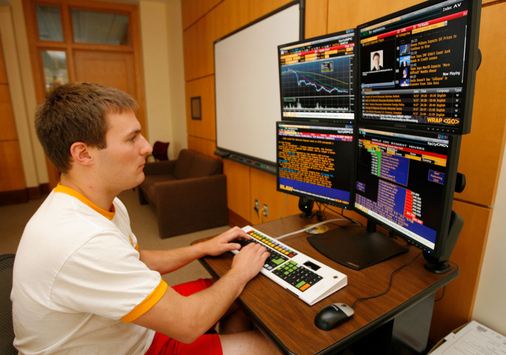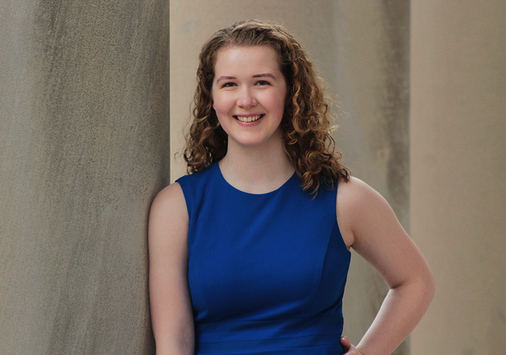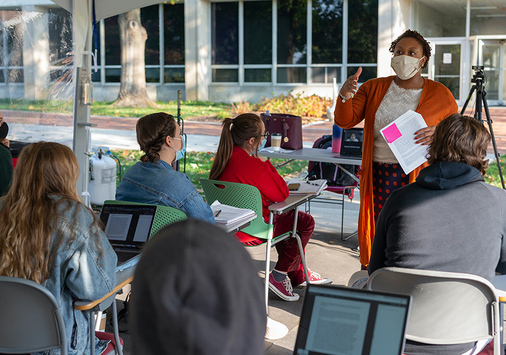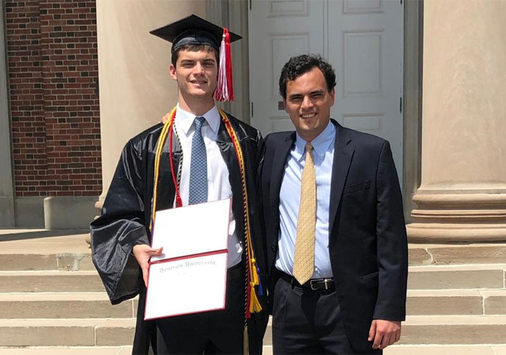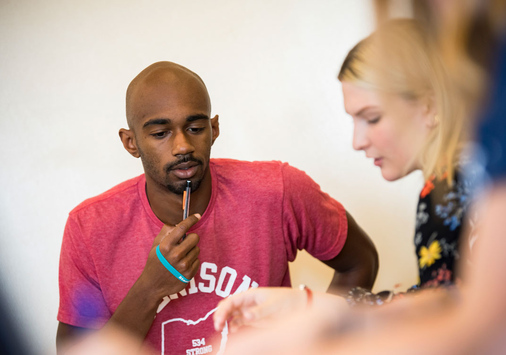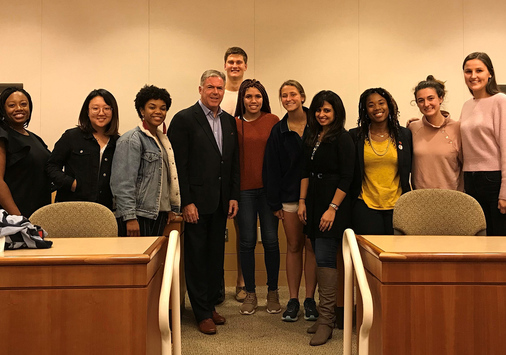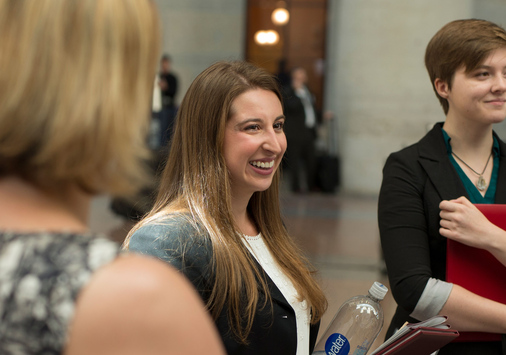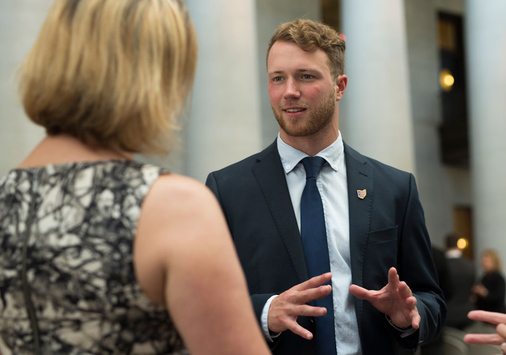
In the spirit on Earth Day, on Thursday, April 23, GC Connects welcomed Bill Ichord ’76 for a virtual conversation on “Economic and Policy Dynamics on the Path to Address Climate Change.” The discussion was grounded in Bill’s long career in the energy sector as well as nearly a decade working in the U.S. Senate in the 1980s with Senators Joe Biden and Jay Rockefeller. Among other achievements, Bill helped to accomplish the passage of the 1988 Alternative Motor Fuels Act.
Building on his professional background, Bill engaged the group of Global Commerce students and faculty in a discussion about the potential impact of COVID-19 on climate change, and specifically on goals such as those set out in the 2016 Paris Agreement.
We began with the question of whether the COVID-19 pandemic could be considered a “black swan event”—that is, an unusual development whose impact depends on the fact that people did not know such an event could exist. Junior Anna Bridge reflected on the fact that this semester in her ANSO/ENVS course, Science, Technology, and Society with Dr. Can Daylan, they have spent time discussing the history of pandemics and pandemic preparation, and that what she has learned would suggest that COVID-19 does not qualify as a completely unforeseen development. Instead, Bill suggested that the black swan element here is not the outbreak itself but the severity of the economic impact, including the drastic drop in oil prices.
This conclusion turned the conversation to considering the specific question of whether the COVID-19 outbreak might slow down the production of electric vehicles over the next few decades, particularly in light of decreases in gas prices and restricted consumer budgets. Topics raised ranged from the impact of gas prices, to the lobbying power of different energy groups, to the impact of differences in U.S. and European energy policies. Bill emphasized the importance of risk analysis focused on consumer behavior, which led to questions of how car manufacturers might make electric vehicles more mainstream to appeal to a broader set of consumers.
Dr. Jessica Burch raised the possibility of whether, at this historical moment, the case for electric vehicles might be framed as an issue of national security and/or public health, resulting in greater government regulation. While we have seen greater regulation in Europe, a likely scenario in the U.S. seems to focus, instead, on the importance of educating consumers, which led to some discussion about what consumer concerns car manufacturers need to address in order to encourage the purchase of electric vehicles.
The last part of the discussion ranged over a variety of related topics, including the potential for electric vehicles in local transport (e.g., delivery vehicles) as opposed to long-distance transport, which is not ideal for a battery-dependent energy source. And sophomore Dublas Vasquez raised the issues of the use of renewable energy by the U.S. military (more emphasis on converting electric grids to renewable energy sources; less potential for electric transport vehicles such as tanks) and Ford’s decision to focus on building trucks without a clear (or at least publicized) plan to build electric trucks.
Bill drew the conversation to a close by emphasizing the importance of continuing to innovate and, just as crucial, the need to develop strong skills of analysis in order to be part of addressing the challenges of climate change.
Thank you to Bill Ichord for sharing his time and experience with us and to Jane Palmer, Assistant Director for Global Commerce Programs for organizing and hosting.

